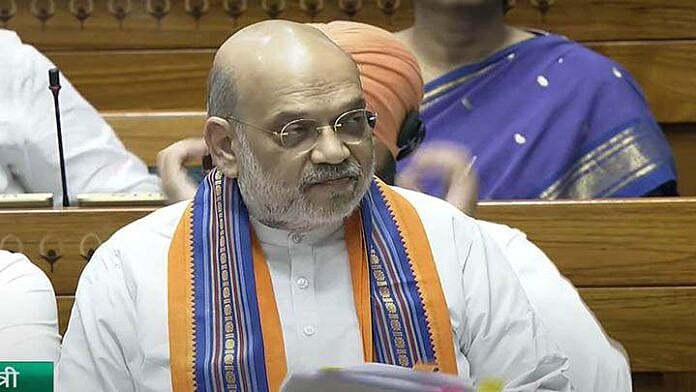No Office From Jail: The Amendment That Could Change India
In what is being hailed as one of India’s most significant moves against corruption, the Modi government has introduced the Constitution (One Hundred and Thirtieth Amendment) Bill, aimed at barring tainted politicians from holding office indefinitely despite facing serious criminal charges.

It’s time to move away from the reality of Two Indias: a government employee gets suspended within 48 hours of arrest, but a politician can continue to hold office from jail indefinitely without restrictions. This glaring double standard has long rewarded the powerful while punishing the powerless.
In what is being hailed as one of India’s most significant moves against corruption, the Modi government has introduced the Constitution (One Hundred and Thirtieth Amendment) Bill, aimed at barring tainted politicians from holding office indefinitely despite facing serious criminal charges.
Home Minister Amit Shah introduced the bill in the Lok Sabha on August 20, amid protests led by TMC MP Kalyan Banerjee.
The provisions are clear: if the Prime Minister, Chief Minister, or any minister is arrested or detained for 30 consecutive days in a case carrying a punishment of five years or more, they must step down by the 31st day. If the Prime Minister fails to advise the President within this time, the minister is removed automatically. Similarly, in the states, the Governor acts on the Chief Minister’s advice.
The bill doesn’t permanently bar reinstatement; once freed, the leader can return to office. This clause undercuts the opposition’s argument that the bill is politically motivated.
Currently, a government employee is automatically suspended if kept in custody for over 48 hours. But politicians despite being custodians of public trust face no such restrictions. This loophole has allowed leaders to run governments from jail, as seen in the Delhi Liquor Policy case involving Arvind Kejriwal and in Tamil Nadu, where a jailed minister was retained by CM MK Stalin.
Such double standards weaken democracy. As Amit Shah himself admitted, had Kejriwal resigned after being jailed, this legislation might not have been necessary.
The opposition remains suspicious, fearing the bill could be weaponized against leaders in non-BJP states such as Delhi and Jharkhand. However, the government has sent the bill to a Select Committee, suggesting openness to scrutiny rather than a unilateral push.
Critics, however, carry their own baggage: the National Herald case against Congress leadership, RJD’s Lalu Prasad convicted in the Fodder Scam, TMC ministers facing cash recovery cases, and multiple allegations against regional leaders.
What sets this move apart is that PM Narendra Modi has included his own office within the bill’s ambit. Initially, the Prime Minister’s position was excluded, but Modi insisted on bringing it under the law—reinforcing his long-standing motto, “Na Khaunga, Na Khane Dunga”.
With over 11 years in office without a single corruption charge on him or his ministers, Modi’s clean record strengthens the credibility of this legislation.
Being a constitutional amendment, the bill requires a two-thirds majority in both Houses of Parliament around 362 votes if all members are present. The NDA falls short of this number, and opposition parties are united in their resistance, calling it a “tool to crush dissent.”
Despite this, if passed, the bill would mark a historic moment in Indian democracy, setting a precedent that corruption and criminality cannot coexist with public office.
Public service is not a right but a responsibility. Citizens deserve leaders with a clean slate, not ones shielded by endless litigation. This bill, if enacted, would be remembered as a defining strike against the criminalization of politics in 21st-century India.
As the nation watches, the real test will not be in the slogans raised, but in the votes cast. Those who oppose this bill must be judged not by their rhetoric, but by where they stand on the question of integrity in public life.
RECENT STORIES
-
-
-
-
-